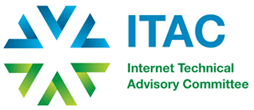By Kathy Brown, CEO & President, The Internet Society

We are in the midst of a very busy global policy dialogue on Internet governance and, in fact, 2014 could be an inflection point in shaping the future of the Internet and its governance. In an increasingly complex environment, stakeholders are seeking global guidelines and frameworks to address a wide range of local requirements.
The Internet is set to pass 3 billion users early next year, and while the open Internet is an unparalleled positive force for economic and social progress, it is not immune from economic and political influences that can limit its benefits. Many of the benefits, and challenges of delivering the Internet to everyone and for everyone are highlighted in the Internet Society’s Global Internet Report.
This report highlights why we must not lose sight of how the Internet, based on the principle of openness ─ open technical standards, open to everyone, open for innovation, and open multistakeholder governance ─ has transformed societies and empowered people all around the world. We must also not take these principles for granted.
As the Internet governance dialogue evolves, we must remember that we already have proven principles to show us the way. In particular, the inclusion of all stakeholders as participants in the Internet’s evolution is essential. Experience shows that bringing together stakeholders from different perspectives can produce sound and thoughtful policies. In this regard, the 2008 OECD Ministerial was a landmark in opening doors for the technical community to provide its expertise on Internet policy issues. Today, the Internet Technical Advisory Committee (ITAC) gathers nearly 30 organizations from the technical community, coordinated by The Internet Society, who have developed strong and trust-based working relationships with the OECD community.
Since the adoption of the OECD Internet Policy Making Principles (IPPs) in 2011, consensus building among different stakeholders has constantly progressed. Many of these principles have shown their relevance at the recent NETmundial in Sao Paulo. As I mentioned in my post NETmundial blog, this conference demonstrated transparency, meaningful participation of all stakeholders, and true consensus-building, which are at the heart of the multistakeholder process. It gave us a renewed appreciation for what a multistakeholder approach could produce.
The OECD IPPs remain critical as we work towards the next OECD Ministerial conference. A key challenge is to go beyond affirmation and build upon these principles towards concrete action and common understanding. And we need to do that together, among stakeholders with diverse expertise, interests, and from different regions. Sharing both best practices and difficulties in the application of these principles is essential in view of a stocktaking exercise at the 2016 OECD Ministerial.
As we head towards the next key events on the Internet governance agenda – including the 9th Internet Governance Forum in September 2014 – let’s concentrate on how all stakeholders (governments, technical organizations, private enterprise, civil society, and others) can better work together to tackle challenges. There may not be a one-size-fits-all multistakeholder model that is identical from region to region or from one institution to the other, but all multistakeholder approaches should be linked by common principles of openness, inclusiveness, and transparency. This is the only path to realizing our shared goal of an open and secure Internet for all.
